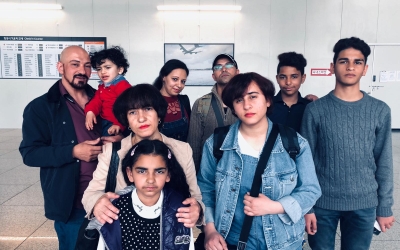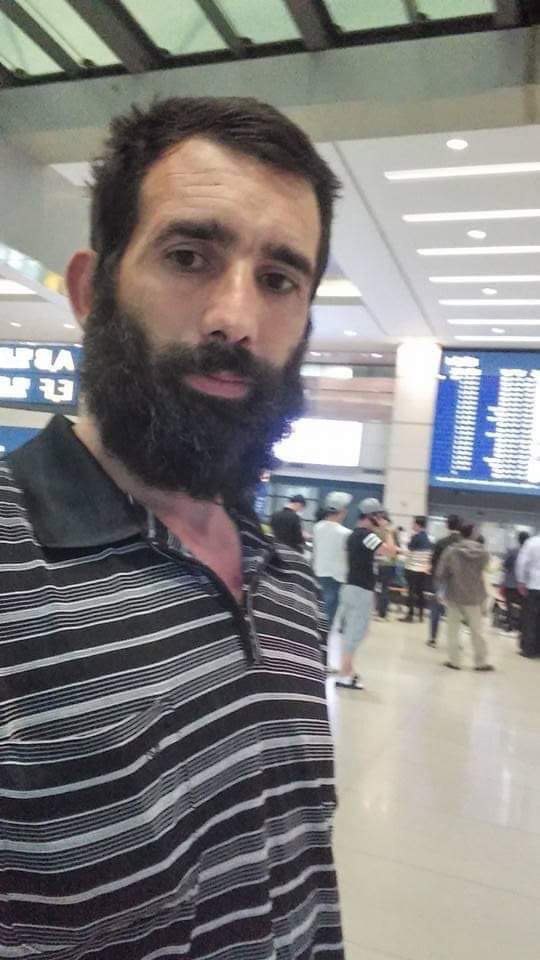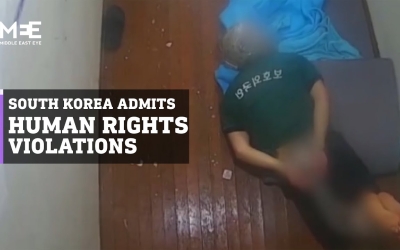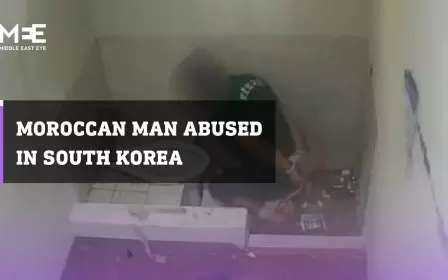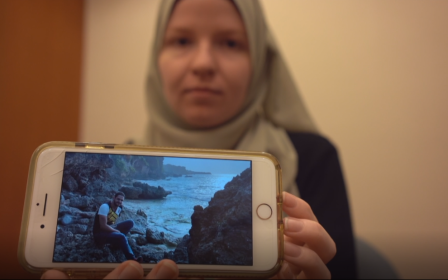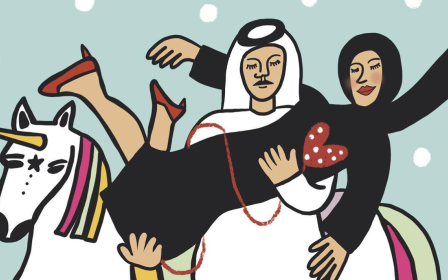'Treated like an animal': Syrian refugee details nightmarish detention in South Korea
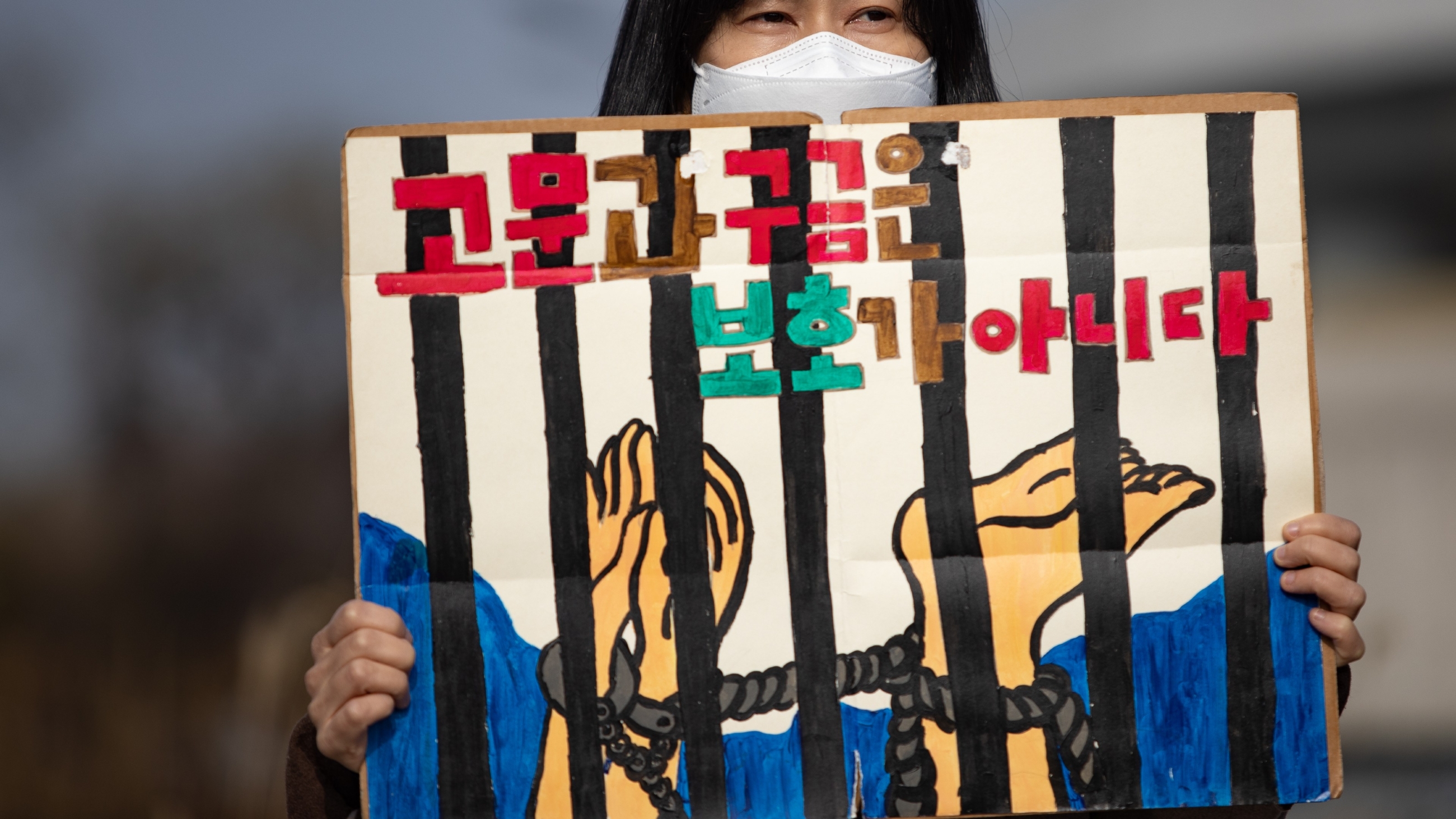
When he fled the Syrian war 10 years ago, Amer Fadou never thought South Korea would be a place where he would be mistreated for months at a detention centre.
While K-pop and K-movies form the predominant global view of South Korea, the lives of asylum seekers like Fadou show a different side of the country.
"I was tied up in chains connected to the handcuffs. I couldn't move my arms and hands at all," said Fadou, 42, detailing the conditions of his 22-month-long detention at a migrant centre.
"They left me chained all day and night and only freed me for 30 minutes during meal time. They would throw me into the solitary confinement room for days and months."
Fadou left Syria as the government intensified its brutal crackdown on the 2011 peaceful pro-democracy protest movement, which then sparked a 10-year conflict.
He sought asylum in South Korea, some 7,700 km away from home, and after years of waiting, he was granted limited stay status.
A dispute with a Korean national years later landed him in detention at a facility for migrants set for deportation.
His nearly two years of imprisonment were defined by solitary confinement, physical abuse, and mental torment.
Now, as cases similar to his begin to emerge, he is seeking justice.
Physical abuse and medical negligence
Fadou arrived in South Korea in 2012 to seek protection from the Syrian government, which had placed him on its wanted list. He applied for refugee status upon arrival, but to his surprise, his request was turned down in 2014.
"The reason [they gave me] was that Syria was safe for me. How is Syria safe? Do they not even watch the news?"
A year later, he was granted humanitarian stay status, which had to be renewed annually.
Unlike with permanent refugee status, those who are granted a humanitarian stay in South Korea can only be employed in manual jobs - such as manufacturing, construction, or agriculture - and receive no financial support from the government.
There are roughly 1,200 Syrian and 800 Yemeni asylum seekers in South Korea, most of whom are living with a humanitarian stay visa, under which they are then forced to work in precarious and often dangerous jobs, according to the South Korean refugee rights centre NANCEN.
After a dispute with his Korean landlord in 2019, Fadou was arrested in the city of Chilgok where he worked and sentenced to six months in prison on charges relating to overdue rent payments, which he denies.
Having served eight months in prison awaiting trial, he was expecting to walk free after his six-month sentence was upheld by an appeals court.
However, Korea's immigration authority issued a deportation order against him in July 2020 on the basis that he had committed a criminal act, and he was transferred to the notorious immigration detention centre in the city of Hwaseong, sometimes referred to as the "foreigners' shelter".
Migrants who the Korean authorities decide to deport are kept in prison-like detention centres - such as the Hwaseong centre - until their deportation date.
"I am no criminal and have done no harm to anyone. But they treated me like an animal," Fadou told MEE.
Of his 22-month-long detention, he says he spent a total of six months in solitary confinement with no access to sunlight and faced physical abuse and medical negligence.
"I was also beaten, and electroshocked multiple times with a stunner that looked like a baton," he said.
"Nerves of my hands are also injured after spending months in handcuffs, and I now have four teeth fallen off because of the mental and physical stress."
This maltreatment Fadou faced, he said, stopped after CCTV footage taken within a detention centre was leaked last October showing a Moroccan asylum seeker tied with ropes in solitary confinement for hours, causing a backlash in the media.
A legal support NGO for refugees, Advocates for Public Interest Law (APIL), had taken his case to court a month earlier.
'I am no criminal and have done no harm to anyone. But they treated me like an animal'
- Amer Fadou, Syrian refugee
After a seven-month court battle, the court ruled that his detention was illegal and ordered his release in April.
Fadou is now demanding justice.
"How will I be compensated for my 22 months? I am mentally and physically broken. Shouldn't those who did wrong to me be punished?"
Recurring incidents
The leaked footage of the Moroccan man showed similar conditions to those described by Fadou.
The man, in his 30s, had all four of his limbs tied behind his back with ropes and was forced to wear head "protection" gear.
He spent 10 months in these conditions in what he previously described as the "Guantanamo" of Korea, in reference to the notorious U.S facility.
After his case made national and international headlines, the South Korean justice ministry acknowledged human rights violations against him.
But testimonies from other asylum seekers suggested not much has changed.
Mohamed El Makkawi, an Egyptian asylum seeker currently held in another detention centre - the Yeosu Detention Centre - described similar conditions.
The 26-year-old was detained for overstaying his visa after repeated requests to renew his asylum were denied by the immigration authorities. He has been in detention for six months with no end in sight.
"Every single day feels like a year," El Makkawi told MEE.
"They [the immigration officers] only treat Arabs like this. There are Libyans and other Egyptians with me in this centre who are being treated terribly."
Like Fadou, El Makkawi says medical service is being denied to asylum seekers inside these centres.
"My eye is hurting so badly, but no medical service is provided since I don't have any money. So, I went on a hunger strike for eight days in protest against these bad conditions. But an immigration officer jeered at me and told me that he'll prepare a box to put me in and send back to Egypt after I die.
"They came every night at 2 am to my cell, shaking the bars and yelling to keep me awake and prevent me from sleeping."
Even though South Korea signed the UN Refugee Convention in 1992 and was the first Asian country to introduce a refugee law in 2013, the total number of recognised refugees is startlingly low.
Numbers published by the Ministry of Justice show that in 2020, only 52 asylum seekers out of 11,892 applicants waiting were granted refugee status, which is an acceptance rate of 0.4 percent. From 1994 to 2020, only 1,084 refugee claimants were accepted out of 71,042 people.
Many of the successful asylum cases were eventually won in the courts, after years of waiting and appealing, with little or no government support.
Middle East Eye propose une couverture et une analyse indépendantes et incomparables du Moyen-Orient, de l’Afrique du Nord et d’autres régions du monde. Pour en savoir plus sur la reprise de ce contenu et les frais qui s’appliquent, veuillez remplir ce formulaire [en anglais]. Pour en savoir plus sur MEE, cliquez ici [en anglais].


